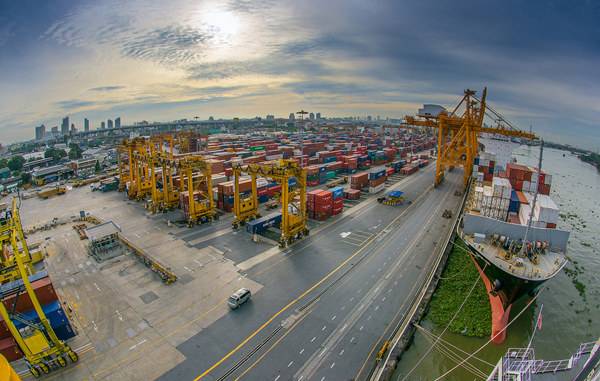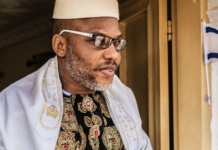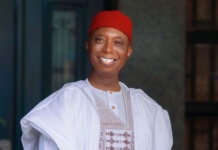By Olakunle Agboola –Transparency reduces corruption, good governance goes beyond transparency in achieving openness, openness means involving stakeholders in decision-making process, transparency is the right to information while openness is the right to participation.
Good governance depends on ability to take responsibility by both administration as well as people.
People’s participation is the essence of good governance

The United Nations Development Program (UNDP) defines governance as the exercise of economic, political and administrative authority to manage a country’s affairs at all levels. It comprises the mechanisms, processes and institutions through which citizens and groups articulate their interests, exercise their legal rights, meet their obligations and mediate their differences.
Good governance ensures that political, social and economic priorities are based on broad consensus in the society and that the voices of the poorest and the most vulnerable are heard in decision-making over the allocation of resources. All men and women should have a voice in decision-making, either directly or through legitimate intermediate institutions that represent their interests. Such broad participation is built on freedom of association and speech, as well as capacities to participate constructively.
 Leaders and the public have a broad and long-term perspective on good governance and human development, along with a sense of what is needed for such development. There is also an understanding of the historical, cultural and social complexities in which that perspective is grounded. In a democratic government like ours, leadership derives its power from the mandate of the people who ideally set the tasks and appoints an elected few to implement the set tasks on their behalf, therefore making the elected few accountable to the people who selected them.
Leaders and the public have a broad and long-term perspective on good governance and human development, along with a sense of what is needed for such development. There is also an understanding of the historical, cultural and social complexities in which that perspective is grounded. In a democratic government like ours, leadership derives its power from the mandate of the people who ideally set the tasks and appoints an elected few to implement the set tasks on their behalf, therefore making the elected few accountable to the people who selected them.
This process is however flawed where leaders are selected and forced upon the people by a privileged or self-appointed “kingmakers” or “God fathers” as the case may be. The implication is that such leaders are not answerable to the people from which genuine mandate is derived, but to the whims and manipulations of those that put them in power. In such situations, selfish desires and protection of personal and selected interests form the basis for policy priority settings, as against the clearly articulated needs of the citizenry.
The just concluded 2018 gubernatorial election in Ekiti-State is a typical example of manipulation, selfish desires and protection of selfish interest as against the wish of the citizens. The desperation to win at the poll led to all manners of inducements which the poor citizens were victimized by vote buying. The result of the election could have been annulled in a society where there is veneration for rule of law but it is sad that vote buying and selling has been time immemorial culture of electoral process in Nigeria.
Leadership transparency and accountability must of a matter of truth, begin from very credible electoral system and processes, that ensure that the will of the people is respected and their popular choice of leaders are rightfully enthroned. Only then can such leaders be brought to book and be effectively held accountable should they be found wanting in the course of their stewardship to the people. Also, only then can they have a listening ear to the cries and aspirations of the people. Civil society organisations and the media can indeed do a lot to ensure that the votes of the people are carried, through voters’ mobilization and education campaigns in their various constituencies.
Access to basic services as education, primary health care, electricity and motorable roads are prerequisites for effective human development with a whole lot of wide reaching effects on the citizenry. Effective leadership is one that puts together and pursues programs that are sustainable and avoid disjointed mode of planning. When sustainability is in focus, it helps check elephant projects that are mostly momentary and designed to fail so that a few only are enriched and the target population unreached.
The population of the country is presently estimated at about 180 million people and of this lot, it is estimated that a whopping 70% comprises of the youths. However, population growth by itself does not equal prosperity, unless young people are educated and job opportunities created we will only be raising a population that is fast becoming a liability rather than assets. The increasing application of modern technology and non-availability of basic services see increasing migration of the youthful population to urban areas in search of employment. Leadership must be proactive and innovative in the provision of viable alternatives, programs and policies that would see to the effective accommodation of this impressionable population.
Corruption fuels bad governance, erodes public confidence, undermines public service delivery and entrenches square pegs in square holes in leadership positions. It is a major impediment to governance. While insatiable wants and human greed are obviously drivers of corruption, inability to hand out prompt penalties to corrupt leaders and individuals often due to prolonged court cases, Administrative and bureaucratic procedures involved in the apprehension of corrupt elements and retrieval of looted funds is a further clog in the fight against corruption and a major leadership challenge.
The world over, it is servant leaders that have made the difference in the lives of their people and advanced their governments over time through vigorous and sacrificial pursuit of positive change with great respect for acceptable societal values. Effective and productive leadership must be seen to be transparent and accountable to the citizenry. This increases goodwill amongst the people and the chances of elected leaders succeeding in their endeavors. This also promotes legitimacy, acceptance and most importantly role modeling. Available resources must be properly harnessed and used based on the principles of equity and equality, so that the impact is felt through the rank and file of society.
Kindly follow us on twitter:@AfricanVoice2











